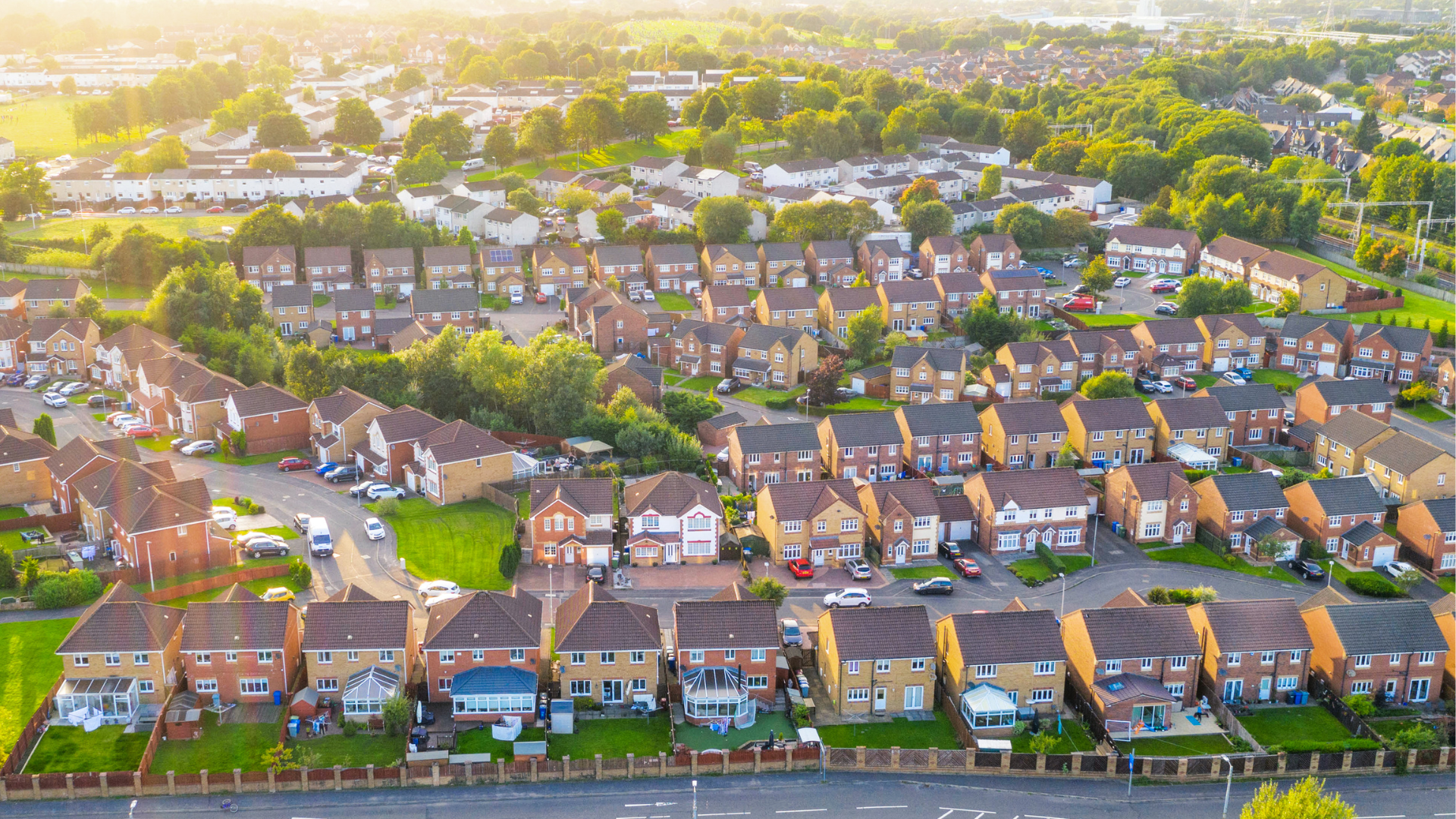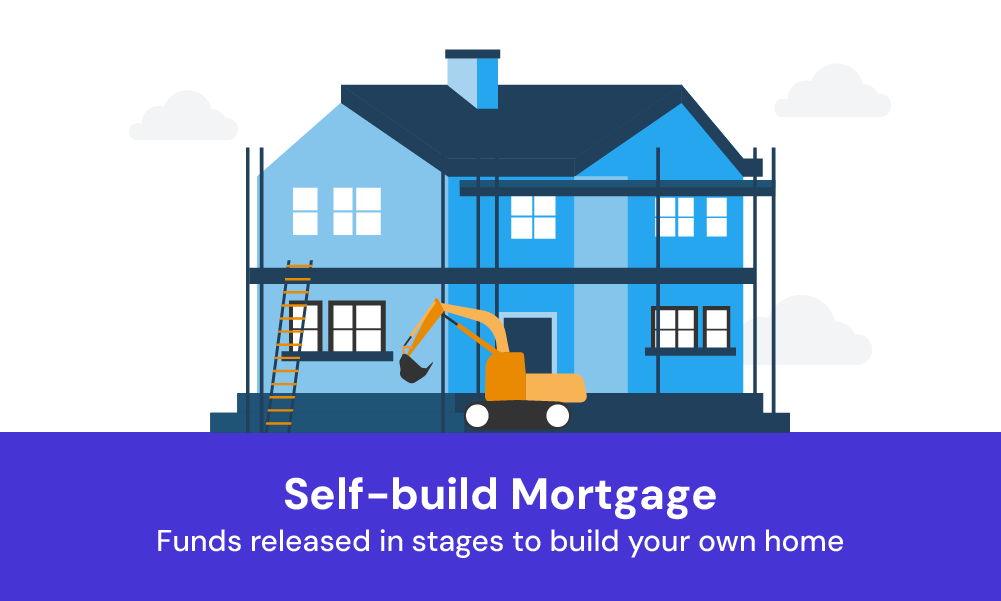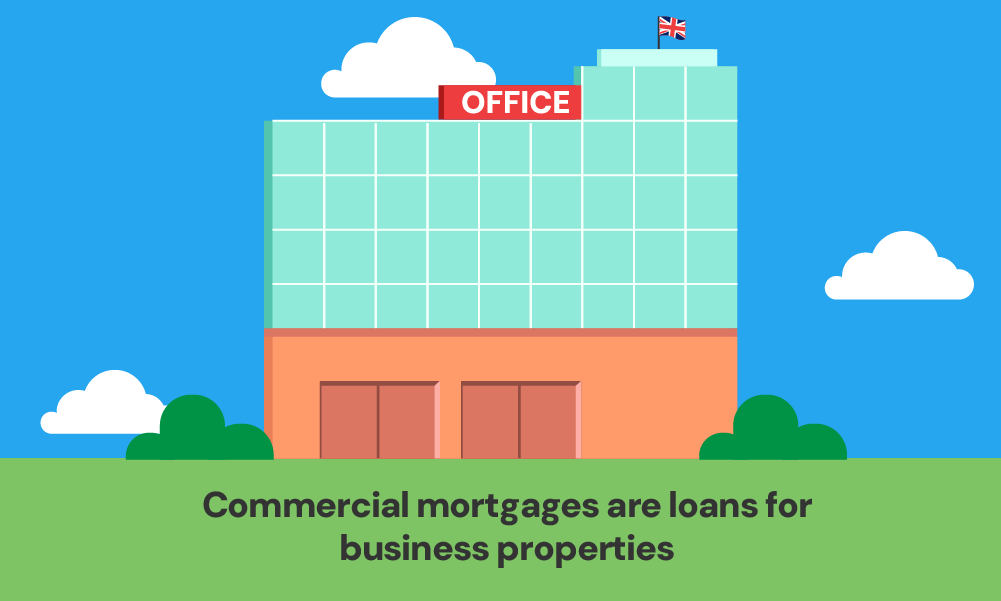- Can You Get a Mortgage To Buy a Land in the UK?
- Different Types of Land Mortgages in the UK
- Land Mortgage Criteria: What Makes You An Attractive Borrower?
- Land Mortgage Rates and Costs in the UK
- Alternatives to Land Mortgages
- Key Considerations Before Applying for a Land Mortgage
- Key Takeaways
- The Bottom Line
How To Get Mortgages For Land: The Ultimate 2024 Guide

Sometimes the journey to property hunting ends up considering building your own. Maybe you can’t find one you like, there’s too much competition, or you’ve found the perfect land.
Before you dive in, it’s important to know the costs of buying land and building a property from scratch.
This could be a great option if you’re a first-time buyer, a business owner, or a developer ready for a new project.
Owning land and building a home isn’t just for the experts; it’s something you can do with the right advice.
This guide will help you understand how to get a mortgage for land, showing you the steps, options, and tips to make your dream a reality.
Can You Get a Mortgage To Buy a Land in the UK?
Yes, you can. However, it’s different from a regular mortgage for a house.
Land mortgages are less common and have their own rules because lending money on just land is riskier for banks. Without a house to guarantee the loan, they have more on the line if things go wrong.
So, what convinces them to lend? Right planning and preparation.
When you apply, they’ll want to know your plans for the land. Will you need planning permission? How will you repay the loan?
They’ll also consider your finances, the land’s location, its current use, and future potential. The more prepared you are, the better your chances of getting approved!
Different Types of Land Mortgages in the UK
If you’re thinking about buying land, it’s key to know what your mortgage options are. Here’s a clearer view:
Self-Build Mortgages
When you want to build your home from scratch, a self-build mortgage supports you by releasing money in stages: first for buying the land, then for building your home.
To get started, you need savings, official planning permission, and a clear construction plan.
This type of mortgage combines land purchase with construction funding, offering a unique support system for your project from the ground up.

Agricultural Mortgages
Ideal for those wanting to dive into farming or expand their agricultural ventures. This mortgage supports buying farmland or smallholdings.
You must outline your farming plans and, if aiming for profit, include a business plan.
It’s not just about the finance; it’s also about embracing a lifestyle of self-sufficiency and connection to the land.
Lenders consider potential grants or subsidies, making your dream of rural living more achievable.
Woodland Mortgages
Woodland mortgages are for those interested in investing in forested areas.
You might want to buy woodland for conservation, to enjoy recreation, or for timber production. But, keep in mind, there are rules.
You’ll need to show a forestry management plan that respects local regulations and enhances the woodland’s value. This mortgage is about investing in nature’s beauty and committing to its preservation and care.
Woodlands offer a unique blend of personal sanctuary and potential investment.
Commercial Mortgages
Commercial mortgages provide funding for those acquiring or developing commercial property.
These properties can be office buildings, shopping centres, industrial warehouses, or apartment blocks.
Unlike residential mortgages, they’re typically used for larger projects and require a strong business plan with a focus on financial return.

Land Mortgage Criteria: What Makes You An Attractive Borrower?
When looking to get a mortgage for land, lenders have a checklist to see if you’re a good fit. Knowing this can help you get approved!
Here’s what they look for:
Unlike residential mortgages, where you might only need a 5-10% deposit, land mortgages typically require more—often between 30% and 70% of the land’s value.
This higher deposit reflects the increased risk lenders take on with land purchases.
Planning Permission
Having permission to build on the land can improve your loan terms and application.
It proves the land has potential for development, which can improve loan-to-value (LTV) ratios and lower interest rates.
Try to get permission before applying for the loan.
Land Use and Purpose
What you plan to do with the land matters.
Whether it’s for a residential building, farming, or a commercial project, the intended use influences both eligibility and mortgage terms.
Lenders like plans that seem likely to succeed and follow the local rules.
A Solid Financial Health and Credit History
Lenders will check your finances closely.
A strong income, minimal outgoings, and a good credit score show you can handle mortgage repayments. These factors reassure lenders of your financial stability.
Business Plans
If your project involves building your own home, farming, or a business, having a detailed business plan is important.
This plan should explain your timeline, budget breakdown, how you’ll get funding, and how you’ll deal with possible problems.
A good plan can help you get better loan terms.
Affordability Assessments
Can you afford it? (highly important for most lenders!)
Lenders will check to make sure you can afford the loan on top of your other bills. They’ll look at your income and expenses.
This helps ensure the mortgage loan won’t cause financial problems for you.
Land Mortgage Rates and Costs in the UK
For land mortgage rates, expect them to be higher than what you’d find with residential mortgages. This is because lending money for land is seen as riskier by banks and building societies.
The exact rate you get can change based on things we’ve mentioned earlier.
Besides paying interest, getting a mortgage for land involves some other costs too. Here are some of the main ones you might encounter:
- Valuation Fees – You pay this so the lender can check the land’s worth. It’s needed before they agree to the mortgage. The cost varies, and you pay it early in the process.
- Broker Fees – If you use a broker to find a mortgage, they charge a fee for their service. It depends on the broker and is usually paid once you accept a mortgage offer.
- Legal Fees – This covers the cost of a solicitor to manage the legal work of buying land. The amount varies based on the complexity and is paid towards the end of the buying process.
- Planning Permission Application Fees – If you need planning permission and haven’t got it yet, there’s a fee to apply. The cost depends on the local council and is paid when you submit your application.
Remember, understanding all costs involved helps you plan better and avoid surprises.
Alternatives to Land Mortgages
If land mortgages are not for you, here are other ways you can buy land:
Cash Purchase
Paying for land upfront with cash can be attractive. There are no interest rates to worry about, and the purchase process can be quicker.
However, this requires a significant amount of money upfront, and you may miss out on potential returns on investments used for a down payment.
Joint Ventures & Investment Partnerships
Teaming up with others allows you to share the financial burden and expertise needed for a land project. This can be a good option if you don’t have all the capital or experience yourself.
But, it’s important to have a clear legal agreement outlining responsibilities and profit sharing beforehand.
Remortgaging to Release Equity
If you already own property, remortgaging to release equity can be another way to fund your land purchase.
This involves taking out a new mortgage on a property you already own to free up cash.
It’s a handy option if you’ve built up significant equity in your home and want to invest in land without touching your savings.
Keep in mind, though, that this increases the mortgage on your existing property, so you’ll need a solid plan to manage the additional repayments.
Plus, it ties the investment in land directly to your current home’s financial stability.
It’s essential to consider the implications and ensure it aligns with your long-term financial goals.
Bridging finance is a short-term loan that can help you secure land quickly, especially at auctions.
This can be useful if you need to move fast but don’t have the full purchase price immediately available.
Remember, bridging finance comes with high-interest rates. Crucially, have a clear plan to repay the loan quickly before the high interest charges become overwhelming.
Land Auctions
Land auctions can be a good way to find land at potentially lower prices. However, be prepared to act fast.
Auctions typically require a 10% deposit on the spot, with the full balance due within 28 days.
Make sure you have the finances readily available and understand the land fully before bidding at auction.
Key Considerations Before Applying for a Land Mortgage
Before buying land, it’s wise to check for any legal issues like ownership rights or access restrictions. Environmental factors can also be important.
Are there protected species or potentially hazardous materials on the land? Addressing these concerns early can prevent problems down the road.
Furthermore, getting expert help from a qualified solicitor is highly recommended. They can handle the legal aspects of buying land and ensure everything is in order.
Depending on the complexity of the land, a land surveyor might also be valuable to assess the property accurately.
Key Takeaways
- You can get a land mortgage in the UK, but it’s different from a standard mortgage. Lenders consider land riskier, so they need to see solid plans for how you’ll use and pay for it.
- The type of mortgage you need depends on your plans for the land, such as building a home, farming, or preserving woodland, with each option having specific requirements.
- Lenders usually ask for bigger deposits (30% to 70% of the land’s value), proof of planning permission, and detailed financial or business plans to approve a loan.
- Interest rates for land mortgages are higher than for house mortgages, and there are extra costs like valuation fees, legal fees, and planning application fees.
- If a land mortgage isn’t the right fit, options like cash purchases, remortgaging your property, or teaming up with others through joint ventures can help you buy land.
The Bottom Line
A land mortgage has its own set of challenges and costs, so doing your homework and comparing lenders is crucial.
Before you decide on anything, it’s wise to chat with a commercial mortgage broker. They can offer you priceless advice and help that’s just right for what you need.
Thinking about going for a land mortgage? Get in touch with us. We can put you in contact with a commercial mortgage broker who knows all about land mortgages, helping you secure the best deal for your plans to buy land.
Get Matched With Your Dream Mortgage Advisor...

Frequently asked questions
Can I get a land mortgage with bad credit?
While having bad credit can make getting a land mortgage trickier, it’s not off the table. With help from a mortgage broker, you might find lenders who specialise in situations like yours. It could take longer and require more effort, though.
Is it possible for first-time buyers to get a land mortgage?
Yes, first-time buyers can apply for land mortgages. Be aware that your rates might be higher. There’s also info on self-builds for first-timers, and even first-time landlords can find suitable commercial mortgage options with the right lenders.
Are private lenders an option for land mortgages?
Private lenders might be an option if you’re looking at high-value land purchases, typically over £1 million.
This route is usually for those with an income over £300,000 or assets above £3 million. If you’re in this category, exploring high-net-worth mortgages could be beneficial.




